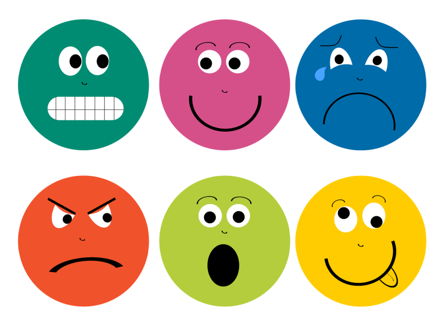How to Develop Emotional Regulation
When I was younger, I watched the television program “Desperate Housewives”.
Now the reason I am telling you this is not to discuss my poor taste in entertainment; I have a point, I promise!
In one of the episodes, some of the characters were extremely upset about something that had happened, but one of the other characters seemed to be the embodiment of calmness. When she was asked how she can possibly be this calm, she replied by saying that it is not proper for a lady to show her emotions. She said that one should imagine putting them away in a box, on a high shelf in a cupboard, and only deal with them when appropriate. Now my question is: is this even possible? Can we merely switch off our emotions, ignore them, or hide them away in some subconscious cupboard?

In our previous blog post, we discussed emotion dysregulation and how the inability to effectively express your emotions is detrimental to you. But is the solution now to ignore or suppress these uncomfortable emotions?
Well, as with most things in life, it is not a case of either or, but rather understanding that emotion, and the regulation thereof, happens on a continuum, and the ability to move up and down this continuum as our environment changes is the skill that needs to be mastered. Emotion regulation is the mastering of a host of skills in order to appropriately adapt to our social environments. Here are a few mentioned by Psychology Today’s Alice Boyes:
- Know what you are feeling
We are all familiar with the basic set of emotions such as happiness, sadness, anger and fear, but are you able to differentiate between emotions like envy and jealousy, or anger, shame, and embarrassment? Often our inability to understand what we are truly feeling is what leads to the inability to express the emotion appropriately. Taking some time to really focus on how you experience different emotions may help you to express them in a more acceptable manner.
- Learn to tolerate emotions and pursue goals in spite of strong emotions
Let’s face it: no one likes to feel anxious or angry, so when these emotions are experienced, the most logical step is to get rid of the emotion as soon as possible. However, the down side of this is when we try and get rid of emotions without properly understanding them we use negative techniques, which are detrimental to our social relationships. The skill to master here is being able to effectively function, even though you are experiencing a strong emotion. E.g. to speak in a respectful manner, even when that person has upset you, to still give your best on a project, even if the team did not go with your suggestions, or being able to pursue a goal, even if it causes you anxiety. Practicing mindfulness, regular exercise, and regularly doing breathing exercises may help with this.
- Being able to talk about your emotions
Do you possess the skill to talk to the people in your life about things that really matter to you, even if they are intimidating, embarrassing or uncomfortable? We often avoid conversations that we need to have in order to avoid conflict, judgement or uneasiness. Part of being able to regulate you emotions, apart from understanding them, is the ability to talk about them. This is known as emotional expression. For example, if your partner and you have an uncomfortable conversation about finances or religion, are you open to hearing their point of view or do you ignore, walk away, or stonewall them?
- Learn to wait
Immediate gratification is not always a good thing. In life, not everything is going to happen when you want it or need it to. Learning patience is a great emotion regulation skill to have, but start small – for example, can you wait to have the rest of the dessert tomorrow, after you have already had a portion? Can you differentiate between what activities need your attention right away and what can wait for later?
- Learn to self-soothe
This seems like advice that comes from a baby book, but as adults we also need to be able to soothe our own emotions when things do not go our way. What is very helpful in self-soothing is enticing the senses, for example, taking a nice hot bath, reading a good book, creating something with your hands, or listen to relaxing music.
These are merely a few skills to be mastered on your road to discovery and emotion regulation. Feel free to read more about emotional regulation or ask us in the comment section.
